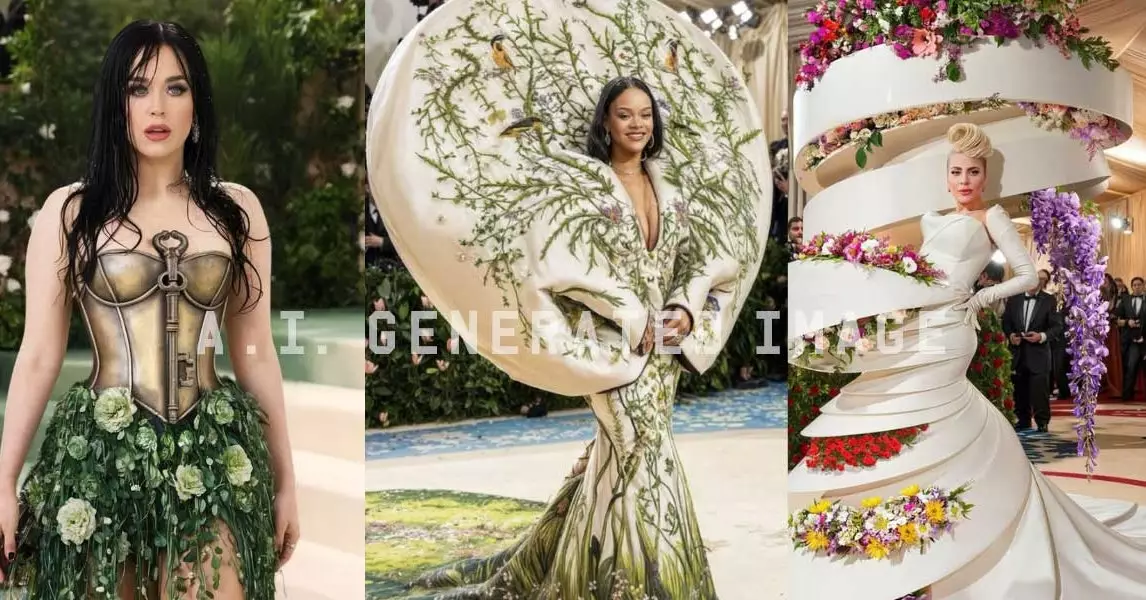The Met Gala, known for its glamorous red carpet filled with music and entertainment celebrities, experienced a new twist this year. Alongside the usual stars, generative AI deepfakes made a significant impact. An example of this can be seen in a post on X that featured Katy Perry in a stunning AI-generated dress adorned with three-dimensional floral designs that seamlessly transitioned into moss. Despite its realism, a Community Note clarified that this image was not real but created through artificial intelligence.
Shortly after the first AI-generated photo of Katy Perry at the Met Gala surfaced, another image emerged. This time, Perry was depicted in a bronze corset and a floral skirt reminiscent of Xena, a look that captivated many online. However, the reality was that Katy Perry did not attend the event at all. Despite this fact, social media was flooded with these deepfake images, leading to widespread sharing and even approval from the celebrities themselves. The same trend extended to other stars like Rihanna, Dua Lipa, and Lady Gaga, who were also featured in fabricated photos from the event.
The prevalence of generative artificial intelligence has made it easier than ever to manipulate and create various images. From celebrities to special events like the Met Gala, AI deepfakes have become a common tool for generating visually stunning but entirely fictional content. The allure of dressing up beloved stars in custom outfits has captured the attention of fans worldwide, leading to the rapid dissemination of these fabricated images on social media platforms.
While AI-generated deepfakes offer a creative outlet for fans and artists alike, the rise of this technology raises questions about authenticity and reality. The ability to seamlessly blend fiction with reality through sophisticated algorithms challenges our perception of truth in the digital age. As these deepfakes become more prevalent in entertainment and media, distinguishing between what is genuine and what is artificially generated becomes increasingly difficult.
The infiltration of generative AI deepfakes into entertainment, as seen through the Met Gala example, marks a shifting landscape in visual storytelling. While these AI creations offer exciting possibilities for creativity and expression, they also blur the lines between fact and fiction. As technology continues to advance, the impact of AI on our perception of reality will undoubtedly be a topic of ongoing discussion and debate.


Leave a Reply